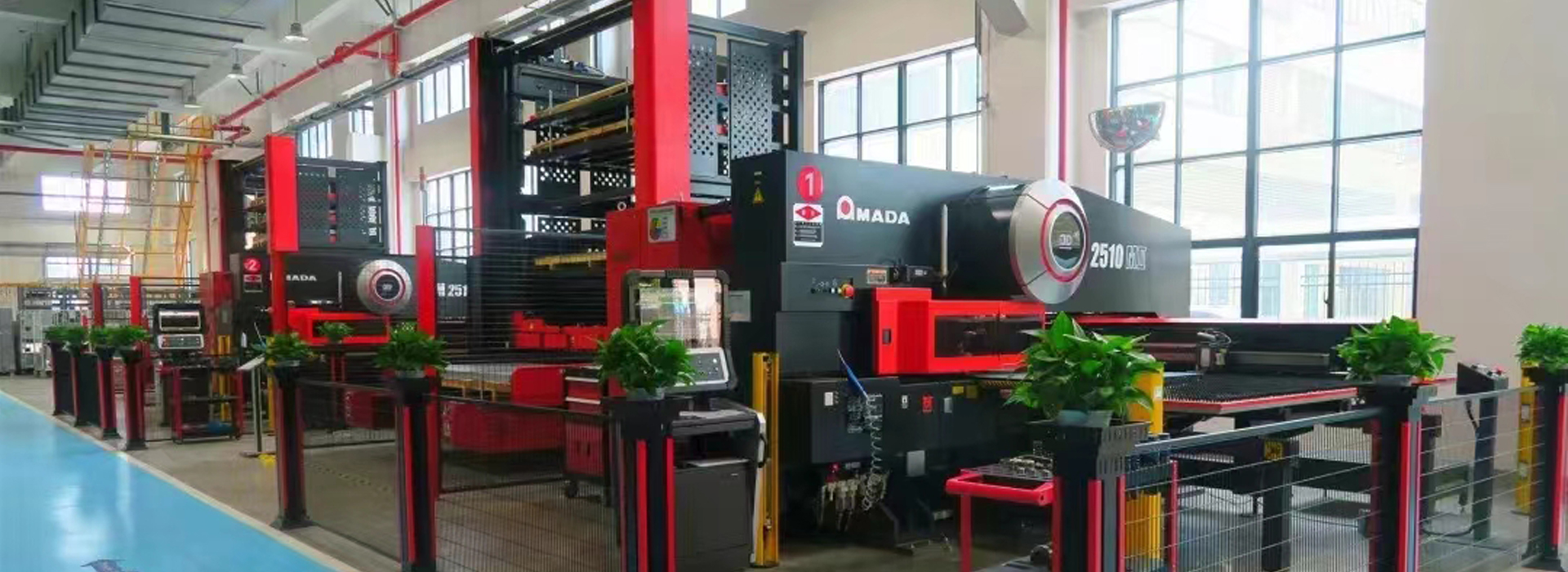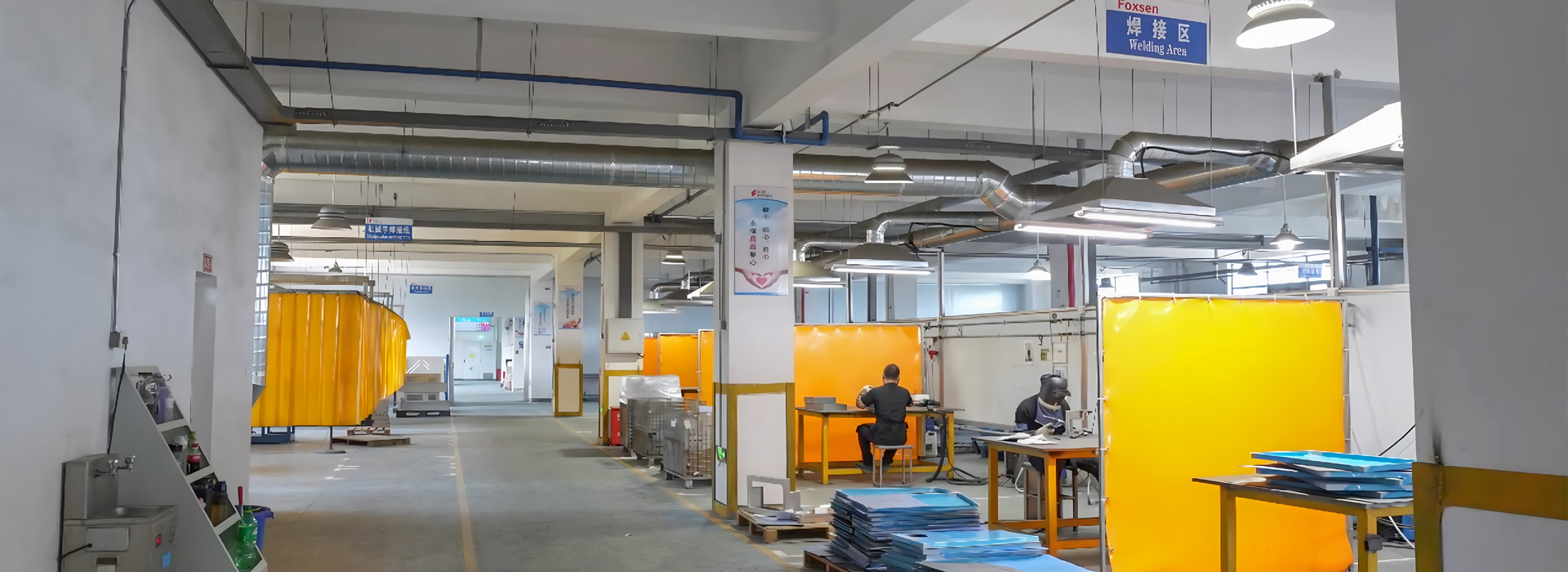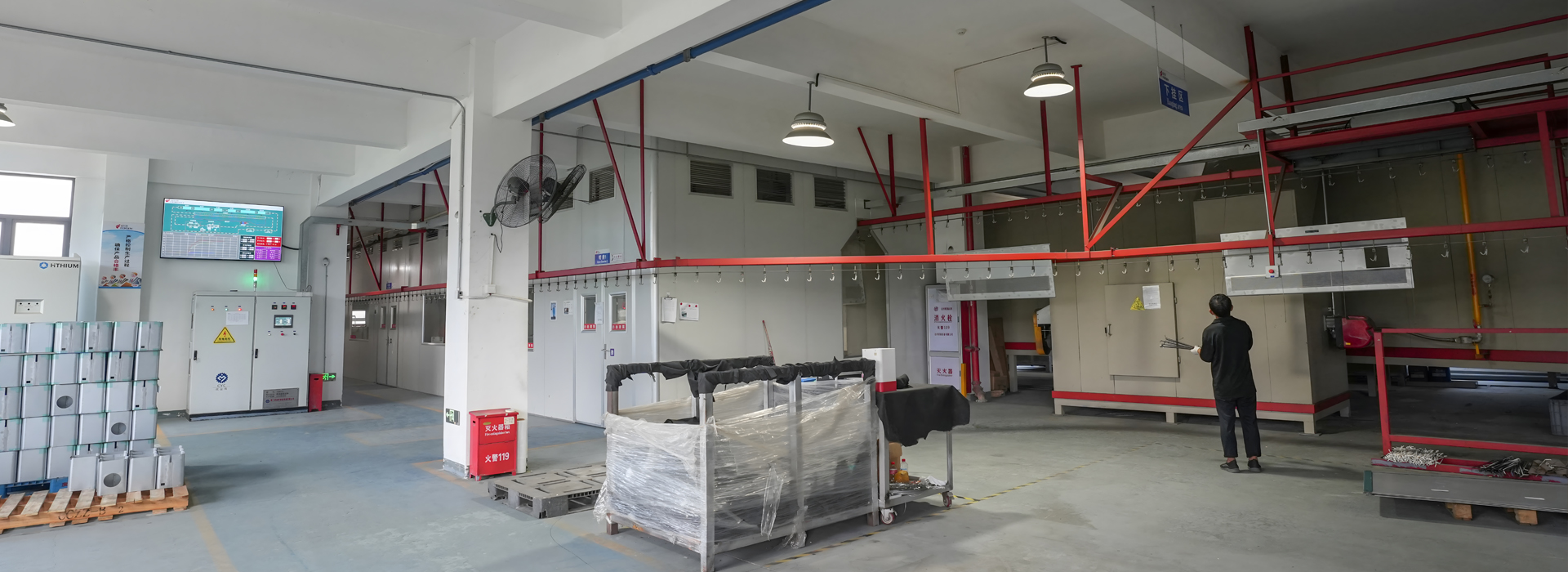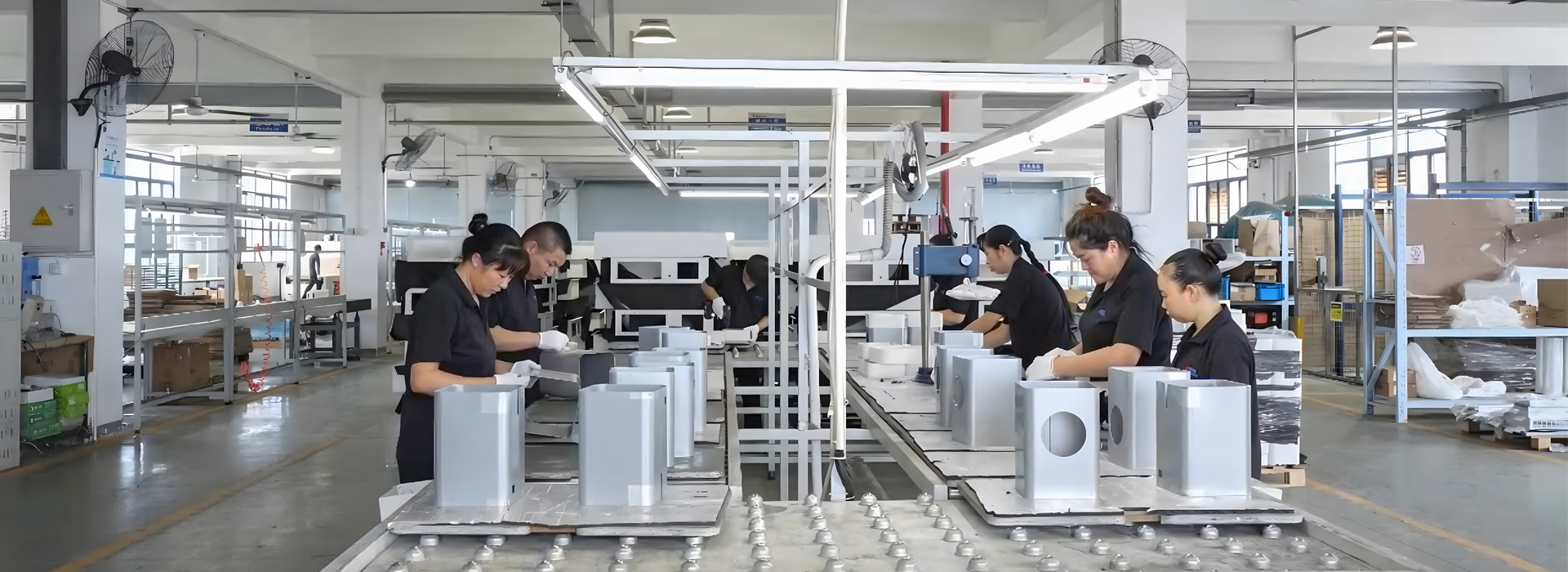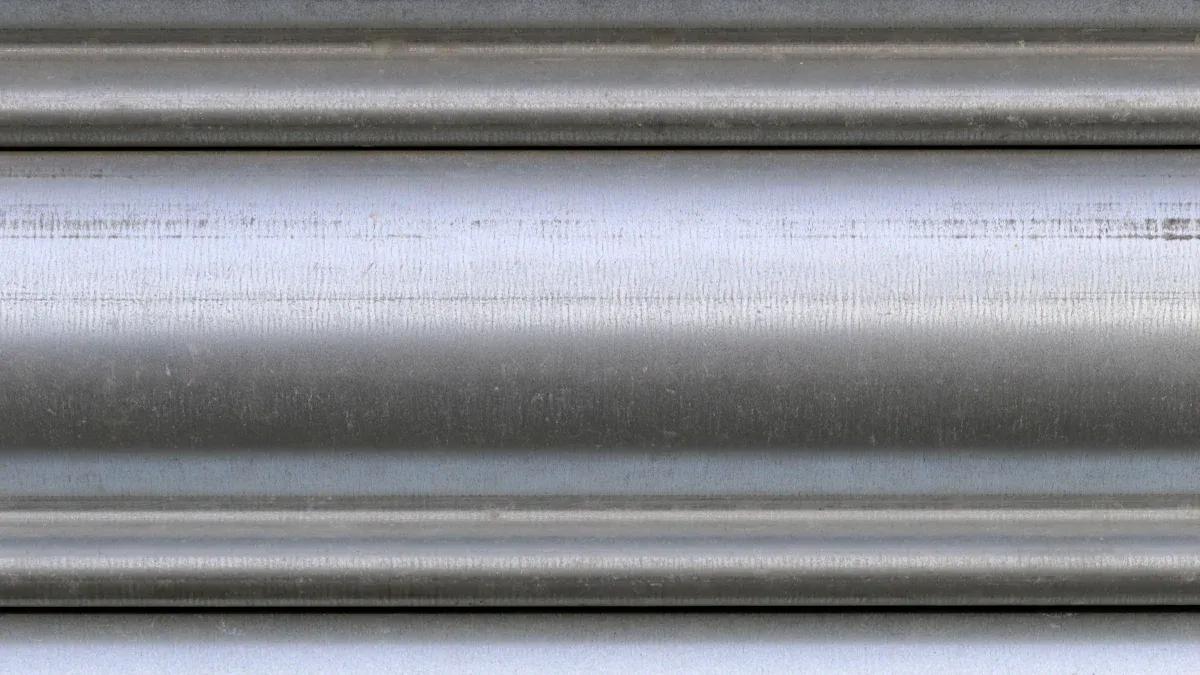Choosing the right sheet metal fabrication service can make or break your industrial project. You need precision, efficiency, and durability to ensure your vision turns into reality. Without a reliable partner, delays and quality issues could disrupt your goals.
A high-quality fabrication process guarantees long-lasting results and minimizes costly errors. Whether you're working on sheet metal Stainless Steel Industrial Components or complex designs, selecting the right provider ensures every detail meets your expectations. You deserve a team that understands your needs and delivers unmatched reliability.
Key Takeaways
Know what your project needs. Understand the materials and design to pick the right service.
Check the experience of fabricators. Choose one with knowledge and good results to avoid mistakes.
Look at their quality checks. Pick a provider that ensures strong and accurate parts.
Think about their tools and skills. Choose a fabricator with modern machines for tricky designs and great results.
Focus on good communication and service. A helpful provider will keep your project smooth and fix problems fast.
Define Your Project Requirements
Material Specifications for Sheet Metal Stainless Steel Industrial Components
Choosing the right material is the foundation of a successful project. Stainless steel offers unmatched corrosion resistance, strength, and durability, making it ideal for industrial applications. Whether you're working in food processing, chemical plants, or marine environments, stainless steel ensures long-lasting performance. Its aesthetic appeal also makes it a preferred choice for projects requiring a polished finish.
Understanding the composition of stainless steel helps you select the right grade for your needs. For example:
Additionally, the chromium content (minimum 10.5%) forms a protective oxide layer, enhancing its resistance to harsh substances. Collaborating with a provider that demonstrates material expertise ensures your project benefits from tailored solutions and optimal performance.
Design Complexity and Precision Needs
Your project's design complexity directly impacts the fabrication process. Precision is critical to ensure the final product meets your exact specifications. Factors like dimensional accuracy, tolerances, and design flexibility play a significant role in achieving the desired outcome. For instance, intricate designs or components with tight tolerances require advanced machinery and skilled fabricators.
Customisation capabilities are equally important. A reliable service provider should offer tailored solutions to meet your unique requirements. Whether you need complex shapes or specific finishes, their ability to adapt ensures your vision becomes a reality. Always prioritize a partner who values precision and customisation.
Production Volume and Timeline
Meeting deadlines and production goals is essential for any industrial project. Before selecting a service, define your production volume and timeline. High-volume projects demand efficiency without compromising quality. On the other hand, smaller batches may require more customisation and attention to detail.
Discuss your timeline with potential providers to ensure they can deliver on time. Look for a team with a proven track record of meeting deadlines while maintaining quality. Their customisation capabilities and commitment to efficiency will help you stay on schedule and within budget.
Evaluate Experience and Expertise
Industry-Specific Experience in Sheet Metal Fabrication
When choosing a stainless steel fabricator, industry-specific experience is a non-negotiable factor. A fabrication company with a proven track record in your sector understands the unique challenges and requirements of your projects. For example, stainless steel used in food processing must meet strict hygiene standards, while components for the automotive industry demand exceptional durability and heat resistance.
Experienced fabricators, like Foxsen, have likely encountered and resolved a wide range of challenges. This expertise ensures they can handle complex designs, select the most suitable materials, and prevent costly errors. Their knowledge of stainless steel’s unique properties, such as thermal expansion and contraction, helps them avoid issues like warping or carbide precipitation during welding. By partnering with an industrial metal fabricator with specialized skills, you can trust that your project will be executed with precision and reliability.
Past Projects and References from Stainless Steel Fabricators
Reviewing past projects is one of the best ways to gauge a fabricator’s capabilities. A reliable fabricator should have a portfolio showcasing their work across various industries. For instance:
Ask potential fabricators for references or testimonials from previous clients. This step allows you to verify their claims and gain insights into their reliability, quality, and customer service. Foxsen, for example, prides itself on delivering exceptional results across diverse industries, making it a trusted partner for industrial projects.
Workforce Training and Certifications
A skilled workforce is the backbone of any successful fabrication company. Look for fabricators who invest in continuous training and certifications for their team. Certifications like ISO 9001:2015 ensure consistent product quality, while ASTM A240/A240M guarantees compliance with material specifications for stainless steel plates and sheets. Programs like the World Stainless Specialist Course and WorldSkills Occupational Standards (WSOS) further enhance technical expertise.
Foxsen’s team undergoes rigorous training to stay updated on the latest techniques and standards. This commitment to excellence ensures that every project meets or exceeds industry benchmarks. A well-trained team not only delivers superior results but also minimizes the risk of errors, saving you time and money in the long run.
Assess Quality Standards
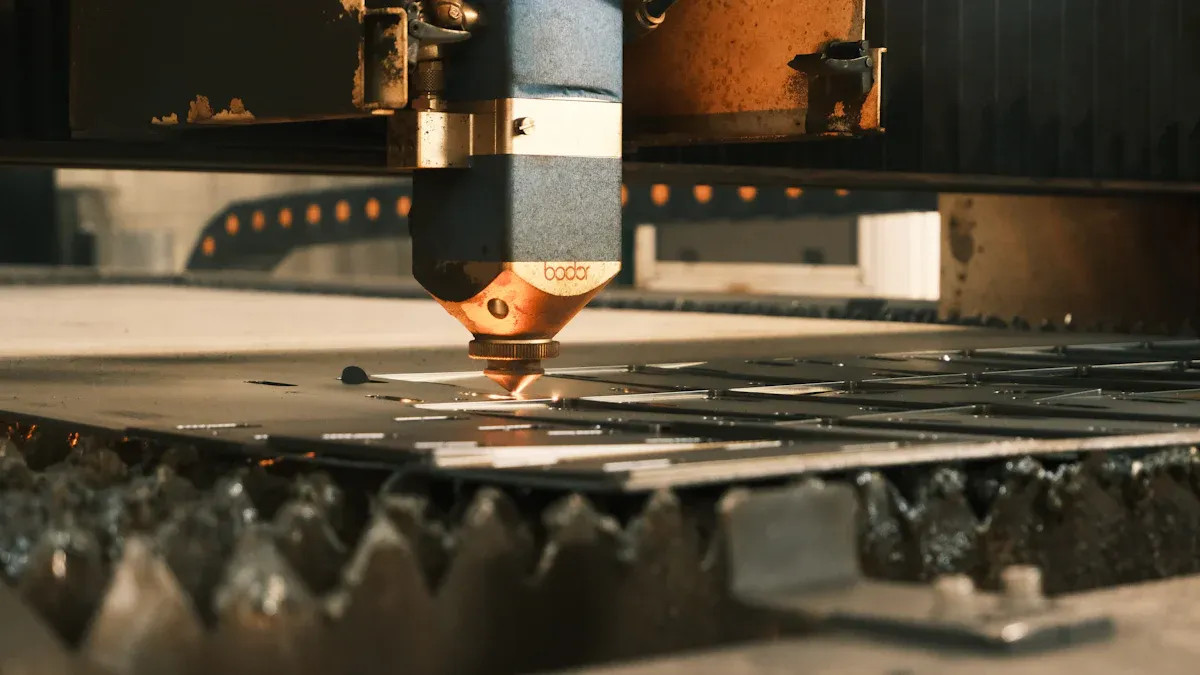
Quality Assurance Processes for Sheet Metal Fabrication
Your industrial project deserves robust quality control measures to ensure every component meets your expectations. Reliable stainless steel fabricators, like Foxsen, implement comprehensive quality assurance practices to deliver consistent results. These practices focus on every stage of the fabrication process, from raw material inspection to final surface finish evaluation.
Here’s how top-tier fabricators maintain fabrication quality:
Dimensional Accuracy: They verify that shop drawings align perfectly with your design specifications.
Raw Material Inspection: Incoming materials undergo checks for thickness, width, and chemical composition to ensure suitability.
In-process Quality Checks: Automated systems monitor manufacturing processes to detect defects early.
Welding and Joining Quality Control: Non-destructive testing methods ensure weld integrity and durability.
Surface Finish Inspection: Aesthetic and functional requirements are assessed to guarantee a flawless finish.
Additionally, leading providers use advanced tools and techniques to maintain precision. For example:
Tolerance Levels: They define permissible variations in dimensions to ensure accuracy.
Precision Measurement Tools: Instruments like calipers and coordinate measuring machines (CMMs) deliver exact measurements.
Fabrication Process Control: Laser cutting technology ensures high precision for intricate designs.
By partnering with a provider committed to quality assurance, you can trust that your project will meet industry standards and exceed expectations.
Certifications and Material Testing
Certifications and material testing are essential indicators of a fabricator’s commitment to quality. Foxsen, for instance, adheres to internationally recognized standards to ensure reliability and safety. Certifications like ISO 9001:2015 demonstrate a focus on customer satisfaction and continuous improvement, while ASME certifications validate compliance with safety codes.
Material testing further substantiates fabrication quality. Leading fabricators use advanced methods such as:
Accurate Composition Analysis: X-ray Fluorescence (XRF) ensures the stainless steel’s chemical composition matches your requirements.
Non-Destructive Testing (NDT): Techniques like dye penetrant, radiographic, and ultrasonic testing verify structural integrity without damaging the material.
Positive Material Identification (PMI): This process confirms the material’s grade and composition, ensuring compatibility with your project.
These certifications and testing methods guarantee that your stainless steel components meet stringent quality standards, giving you peace of mind and confidence in your project’s success.
Samples and Facility Tours
Seeing is believing. Requesting samples and touring fabrication facilities can help you evaluate a provider’s commitment to quality. Samples allow you to assess the craftsmanship, surface finish, and dimensional accuracy of their work. For example, Foxsen offers samples that showcase their expertise in creating stainless steel components with intricate designs and flawless finishes.
Facility tours provide an inside look at the fabrication process. During a tour, you can observe the machinery, workflow, and quality assurance practices in action. Pay attention to the cleanliness and organization of the workspace, as these factors often reflect the company’s dedication to excellence.
By reviewing samples and visiting facilities, you gain valuable insights into the provider’s capabilities and their ability to meet your project’s requirements. This step ensures you make an informed decision and choose a partner who prioritizes quality at every stage.
Consider Technology and Capabilities
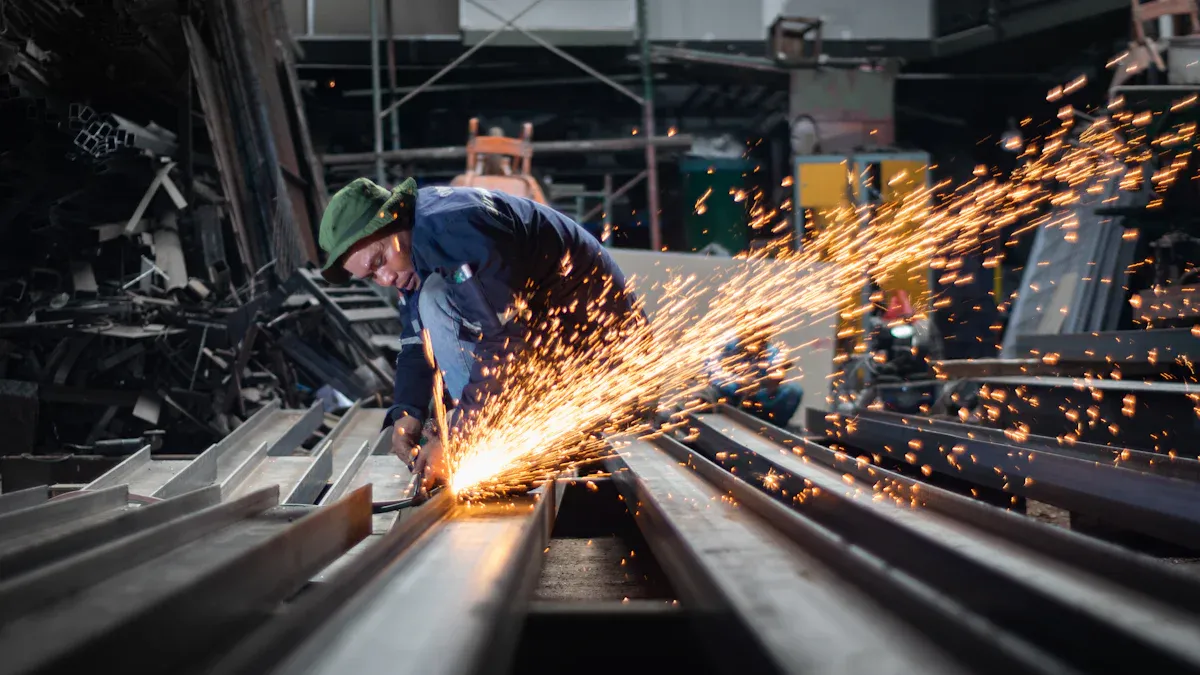
Equipment and Machinery for Stainless Steel Fabrication
The right equipment and machinery can significantly impact the quality and efficiency of stainless steel fabrication. Advanced tools like CNC machines ensure precision and consistency, which are critical for industrial projects. For example, CNC-controlled equipment offers high repeatability, ensuring that every component meets exact specifications. This level of precision reduces material waste and enhances cost efficiency.
Modern machinery also strengthens materials during the forming process, improving durability. Providers with state-of-the-art equipment can handle complex designs and tight tolerances, giving you the confidence that your project will meet industry standards.
Advanced Techniques for Sheet Metal Industrial Components
Fabrication techniques have evolved to meet the demands of modern industrial projects. Methods like CNC milling and metal material extrusion offer unmatched accuracy and structural integrity. For instance, using a −45°/45° raster angle during fabrication enhances interlayer bonding, while sintering at high temperatures improves densification and mechanical properties. These techniques ensure that your components are not only strong but also highly durable.
Additionally, advanced heat treatment processes refine the grain structure of stainless steel, increasing both strength and ductility. This makes the material suitable for industries like automotive and aerospace, where performance and reliability are non-negotiable. By choosing a provider skilled in these techniques, you ensure your project benefits from cutting-edge innovation.
CNC milling addresses challenges in industries like automotive and machine building.
High-temperature sintering enhances material properties through active atomic diffusion.
Optimal heat treatment improves strength and ductility by refining grain structures.
Compatibility with Project Requirements
Not all fabrication services are created equal. You need a provider whose capabilities align with your specific project needs. Look for a company that offers a wide range of materials, including stainless steel, aluminum, and copper, to ensure flexibility in design and application. Providers with over 30 CNC machines can handle both low and high-volume production, giving you the scalability you need.
Custom finishing processes are another critical factor. Whether you require a polished surface or a specific coating, the ability to customize ensures your project meets both functional and aesthetic goals. Additionally, rapid prototyping capabilities allow you to test designs quickly, saving time and reducing risks.
By selecting a provider with these capabilities, you ensure your project runs smoothly and achieves the desired results.
Compare Pricing and Value
Detailed Quotes for Sheet Metal Fabrication Services
Understanding the cost structure of metal fabrication services is crucial for making informed decisions. A detailed quote provides transparency, helping you evaluate whether a provider aligns with your budget and project needs. Many factors influence the cost, including material type, design complexity, and production volume. For instance, stainless steel fabrication costs are typically three times the price of the raw material. If one ton of stainless steel costs $400, the fabrication cost may range from $1,200 to $1,500 per ton. However, intricate designs or longer fabricated pieces can increase this amount to $2,500 per ton.
Additional costs, such as delivery fees or pre-priming at the factory, may also apply. While these might seem like extra expenses, they often save you money in the long run by reducing maintenance needs. Always request a comprehensive breakdown of costs to avoid surprises and ensure you’re getting the best value for your investment.
Balancing Cost with Quality and Reliability
Choosing the cheapest option might seem appealing, but it often leads to higher expenses over time. High-quality stainless steel may have a higher initial cost, but its durability and low maintenance requirements make it a cost-effective choice. Reliable metal fabrication services ensure your components meet industry standards, reducing the risk of replacements or repairs. For example, stainless steel’s strength and corrosion resistance minimize wear and tear, saving you money on frequent replacements.
Investing in quality also enhances the aesthetic appeal of your project. Stainless steel’s polished finish requires minimal upkeep, further lowering overall costs. By balancing cost with quality and reliability, you ensure long-term savings and project success.
Transparent Pricing Policies
A trustworthy metal fabrication company prioritizes transparency in its pricing policies. Look for providers who offer clear and detailed quotes, outlining all cost factors upfront. This includes material costs, labor charges, and any additional fees. Transparent pricing not only builds trust but also helps you plan your budget effectively.
Here’s a comparison of average costs for different metals to give you an idea of pricing:
Transparent pricing ensures you know exactly what you’re paying for, allowing you to compare options and choose the best provider for your project.
Evaluate Customer Service and Communication
Responsiveness and Communication Style
Effective communication is the backbone of any successful partnership. When choosing a stainless steel sheet metal service, you need a provider that values prompt and clear communication. Quick response times, ideally within 24–48 hours, show that the company prioritizes your needs. Whether you have questions about material specifications or need technical support, timely replies ensure your project stays on track.
Here’s a breakdown of key aspects to evaluate:
Pay attention to how a company handles inquiries and resolves issues. A provider with strong communication skills will keep you informed at every stage, reducing misunderstandings and delays.
Collaborative Approach to Industrial Projects
Collaboration is essential for achieving the best results in industrial projects. A reliable provider works closely with you to understand your goals and overcome challenges. Strategies like supply chain integration (SCI) enhance performance by ensuring resource availability and minimizing risks. For example:
Retaining ownership of resources ensures raw material self-sufficiency.
Vertical hedging strategies mitigate production risks.
Horizontal hedging approaches promote environmental sustainability.
By fostering a collaborative relationship, your provider becomes a true partner in your success. They’ll adapt to your needs, offer innovative solutions, and help you navigate complex project requirements.
Reviews and Testimonials
Customer feedback offers valuable insights into a company’s reliability and service quality. Positive reviews highlight a provider’s ability to deliver exceptional customer service and meet client expectations. Here are some testimonials from satisfied customers:
These testimonials reflect the importance of choosing a provider known for exceptional customer service. Look for consistent praise about responsiveness, product quality, and professionalism to ensure you’re making the right choice.
Finalize the Decision
Key Factors to Consider for Stainless Steel Fabricators
Choosing the right metal fabricator involves evaluating several critical considerations to ensure your project’s success. Here are the key factors you should prioritize:
Workforce Expertise: Ensure the fabricator has a skilled team experienced in handling projects similar to yours.
Financial Stability: A financially sound company can invest in advanced tools and maintain consistent quality.
Technology: The provider must use modern equipment and techniques to meet your project’s precision and efficiency needs.
Materials Knowledge: Look for expertise in working with various stainless steel grades to match your specific requirements.
Quality Assurance: Robust testing processes and adherence to industry standards are non-negotiable.
Customer Service: A provider with excellent communication and support ensures a smooth collaboration.
Pricing: Competitive pricing is important, but it should align with the quality and reliability offered.
By focusing on these factors, you can confidently select a fabricator who aligns with your goals and delivers exceptional results.
Negotiating Terms and Setting Expectations
Effective negotiation and clear expectations are essential for a successful partnership. Start by outlining your project’s specific needs, including the stainless steel grade, testing standards, and reporting requirements. This eliminates assumptions and ensures both parties are aligned.
Traceability is another critical aspect. Ensure the fabricator can track materials from their origin to the finished product. This is especially important for projects requiring high precision or regulatory compliance. Building long-term, transparent relationships with your fabricator can also lead to better consistency and responsiveness.
Stay informed about industry trends and regulations that may impact your project. This knowledge allows you to set realistic expectations and negotiate terms that protect your interests. A well-structured agreement ensures smooth execution and minimizes risks.
Monitoring Progress and Communication
Monitoring your project’s progress is vital to ensure it stays on track. Establish clear performance metrics and communication benchmarks with your fabricator. For example:
Regular updates and progress reports keep you informed and allow you to address issues promptly. A fabricator with strong communication practices will ensure transparency and collaboration throughout the project. This proactive approach guarantees that your expectations are met and your project is completed successfully.
Choosing the right stainless steel sheet metal service is a critical step in ensuring your project’s success. By carefully evaluating factors like expertise, technology, and customer service, you can secure a provider who delivers quality, efficiency, and reliability. This decision not only saves time and resources but also guarantees that your industrial project meets its goals with precision.
Take a systematic approach to your selection process. Define your needs, ask the right questions, and verify credentials. The effort you invest now will pay off in the form of durable, high-performing components and a seamless project experience.
FAQ
What makes stainless steel ideal for industrial projects?
Stainless steel offers unmatched durability, corrosion resistance, and strength. These qualities make it perfect for demanding industrial environments. Its versatility ensures it meets the needs of various industries, from food processing to automotive production.
How do I ensure my provider meets quality standards?
Ask for certifications like ISO 9001:2015 and ASME. Request samples and tour their facilities. These steps confirm their commitment to quality and ensure your production requirements are met.
Can stainless steel fabrication handle complex designs?
Yes, advanced techniques like CNC machining allow for intricate designs. Providers with modern equipment can meet tight tolerances and deliver precise results, ensuring your production goals are achieved.
How does production volume affect pricing?
Higher production volumes often reduce per-unit costs due to economies of scale. However, smaller batches may require more customization, which can increase costs. Discuss your production needs with your provider for accurate pricing.
Why is communication important in stainless steel fabrication?
Clear communication ensures your production stays on track. It helps resolve issues quickly, aligns expectations, and fosters collaboration. A responsive provider guarantees smooth project execution.

